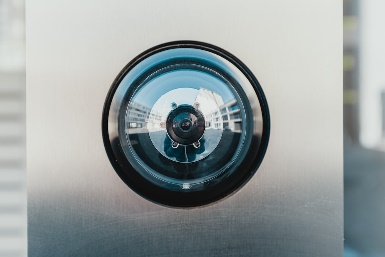With great frequency, police ask citizens to hand over video footage captured by their doorbell camera. Refusal is punishable by law. Privacy experts and lawyers warn that this violates privacy laws and that unsuspecting citizens can unintentionally end up in criminal files. According to a BNR poll.

The rise of the doorbell camera has made citizens targets of coercive measures on a large scale, BNR concludes. To track down and prosecute suspects, police are only too happy with footage recorded by smart doorbells from manufacturers such as Ring and Eufy.
However, the retrieval of these images is usually done in a coercive manner, namely by requisition. Refusing a demand is punishable by law. Anyone who does not voluntarily hand over video footage risks a fine or a three-month prison sentence. For this reason, according to the Prosecutor General's Office, no one has so far refused to comply with a requisition.
Inquiries made by BNR to ten regional police forces, the National Unit and the Openbaar Ministerie 's Office reveal that demanding footage from owners of smart doorbells is the rule rather than the exception. Requesting camera footage is often the first thing officers do when conducting a neighborhood investigation. requisitioning is common then: if the police ask for the images voluntarily, they may not be usable as evidence.
Privacy experts are concerned about these practices. "That the police can requisition images, that fits into a broader trend, namely that citizens and companies seem to be becoming more and more extensions of the police and justice," says Vincent Böhre, lawyer and director at the Privacy First foundation. He recognizes the importance of images for investigation and prosecution, but in his view there is currently too little attention paid to the privacy of citizens.
Another common criticism is that doorbell cameras often structurally film the public road. According to the Autoriteit Persoonsgegevens , this is not allowed. "So the police are constantly requesting images that are illegal. Indirectly you are then legitimizing that as police. It is actually laundering illegal images," Böhre said.
Lawyers are also concerned that police are increasingly demanding video footage of citizens. Indeed, when requisitioned, Dutch citizens must also provide their names and addresses. Private data of citizens can thus end up in unwanted criminal files.
Lawyers therefore warn to think carefully in advance about the legal implications of a doorbell camera. "That's what you should think very carefully about. That what you're doing affects other people's privacy. And that's a responsibility that we all have to handle that very carefully," said Hester de Vries, a lawyer and partner at law firm Kennedy Van der Laan.

